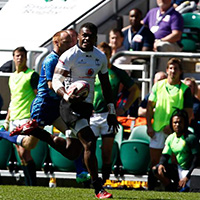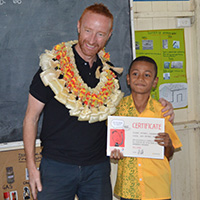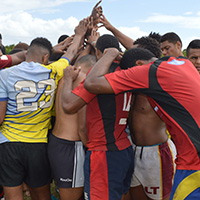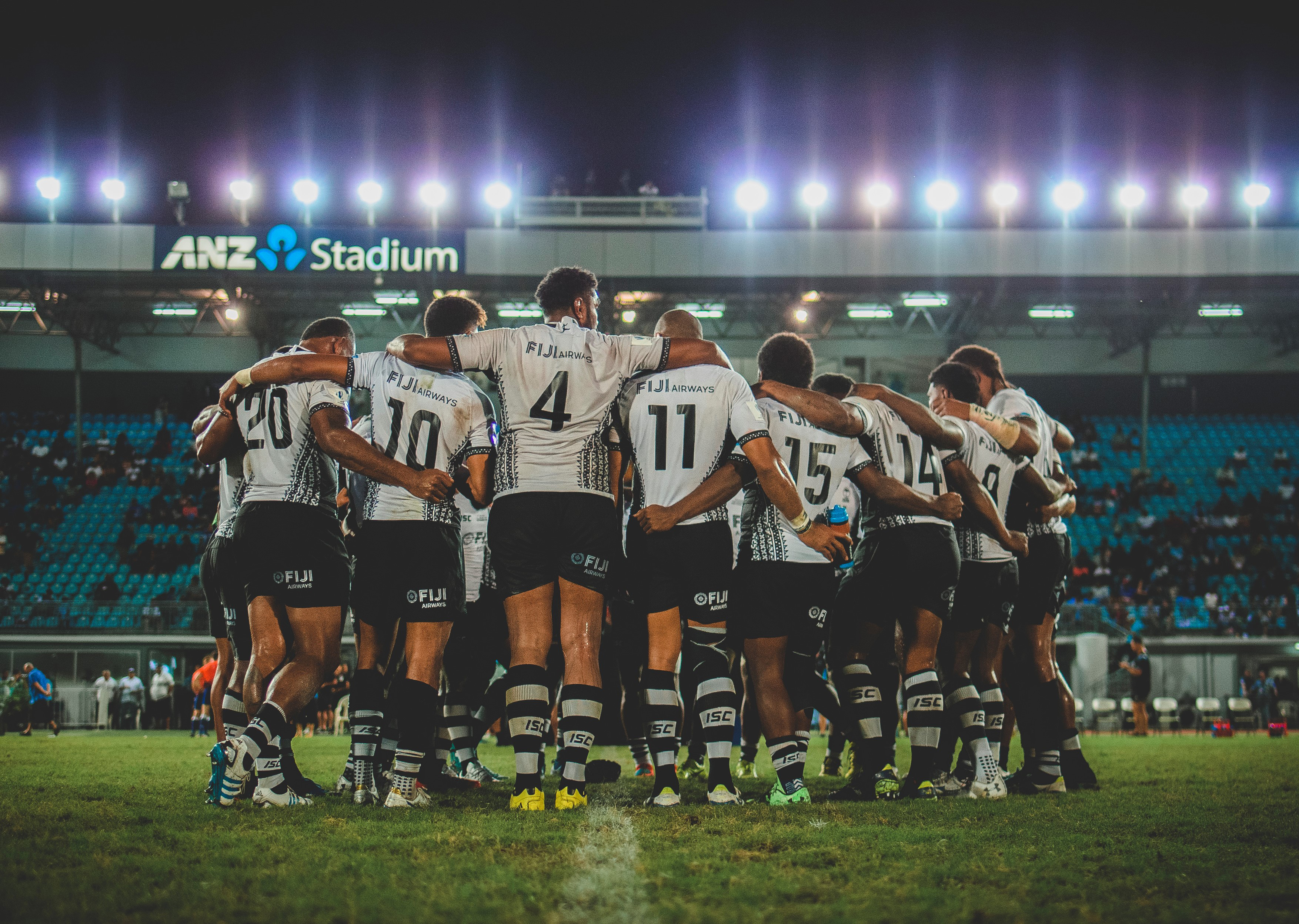First Aid in Rugby (FAIR) World Rugby Medical Education
Player Welfare is becoming increasingly important in professional sports today. Rugby is no exception to the rule and World Rugby until a few years ago, released its Medical component of courses with the main objective of Player Welfare in mind.
This online course is designed for club staff, coaches, referees and parents as a sports first aid course for Rugby Union, and is a prerequisite for anyone attending the World Rugby Level 1 First Aid in Rugby course.
First Aid in Rugby (FAIR) is an introductory course in First Aid tailor made for the sport of rugby as injuries are a part of any contact sport. Serious or life-threatening injury in Rugby is, however, rare. The outcome of many injuries can often be improved by very simple first aid skills from bystanders until emergency help arrives.
Such bystanders may be parents, club officials, coaches, referees or even other players. This online programme aims to equip with some of the basic skills you may need if you ever found yourself in such a situation.
Two FAIR Courses were facilitated by the Fiji Rugby Union’s Training and Education Team. The first one was conducted on the 6th of June for the Fiji Sports Council and its support staff and the second on the 9th of June for the Provincial Unions of Fiji.
The course was well attended by 10 of the 12 provincial unions. Malolo and Nadi were the only unions absent from the course. A total of 24 participants attended and hopefully, their learnings and experience can be shared amongst their unions and help to assist in case of emergencies.
Participants of this course must be firstly certified through an online Concussion Management for General Public and First Aid in Rugby. These two courses are available on line and participants need to be registered online and go through the exam before attending the course.
FRU CEO, John O’Connor reiterated that these courses were in line with the FRU’s long term development plans in ensuring that all provincial unions were well equipped with a qualified staff, official or coach to ensure that player welfare was maintained and that they got the best and first hand care that was available to them at any provincial match or training session.
He added that this was the beginning of many more courses to come and that the FRU will continue to facilitate and conduct courses and up-skill participants from the provincial unions to ensure that they are fully qualified.
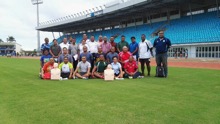
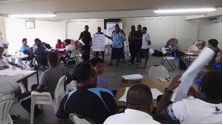
| Level 1
First Aid In Rugby |
Level 2
Immediate Care in Sport |
Level 3
Advanced Immediate Care In Sport |
|
| Course descriptor: | Training as a laymen
responder in sports first aid |
Sports immediate care
training for pitch side medical staff |
Advanced immediate care
training for pitch side medical staff |
| Who is it for? | Coaches, teachers, parents,
officials and interested others who may be asked to respond to an injured rugby player |
Physiotherapists or athletic
trainers, sports rehabilitation and doctors who provide formal pitch side medical cover |
Physiotherapists or athletic
trainers, sports rehabilitation and doctors who provide formal pitch side medical cover within an immediate care governance structure/ performance sport |
| Attendance or
Accreditation? |
50% online, 50% attendance | 20% online, 80% attendance
with knowledge and competency-based assessment |
20% online, 80% attendance
with knowledge and competency-based assessment |
| Minimum duration: | 8 hours | 10 hours | 20 hours |
| Prerequisites: | • Over 14 years of age
• Completed Rugby Ready online programme • Completed First Aid In Rugby online programme |
Registered medical
practitioner, physiotherapist, sports trainer, sports rehabilitation or therapist practitioner |
Registered medical
practitioner and post graduate physiotherapist, sports trainer, sports rehabilitation or therapist practitioner |
The World Rugby Recognise and Remove message incorporates 6 “R”s
| RECOGNISE | Learn the signs and symptoms of a concussion so you understand when an athlete might have a suspected concussion. |
| REMOVE | If an athlete has a concussion or even a suspected concussion he or she must be removed from play immediately. |
| REFER | Once removed from play, the player should be referred immediately to a qualified healthcare professional who is trained in evaluating and treating concussions. |
| REST | Players must rest from exercise until symptom-free and then start a Graduated Return to Play. World Rugby recommends a more conservative return to play for children and adolescents. |
| RECOVER | Full recovery from the concussion is required before return to play is authorized. This includes being symptom-free. Rest and specific treatment options are critical for the health of the injured participant. |
| RETURN | In order for safe return to play in Rugby, the athlete must be symptom-free and cleared in writing by a qualified healthcare professional who is trained in evaluating and treating concussions. The athlete completes the GRTP (Graduated Return to Play) protocol. |
CONTACT FIJI RUGBY UNION MEDIA OFFICER, TALEI MOW ON talei.mow@fijirugby.net or 8903855 FOR ANY QUERIES.


